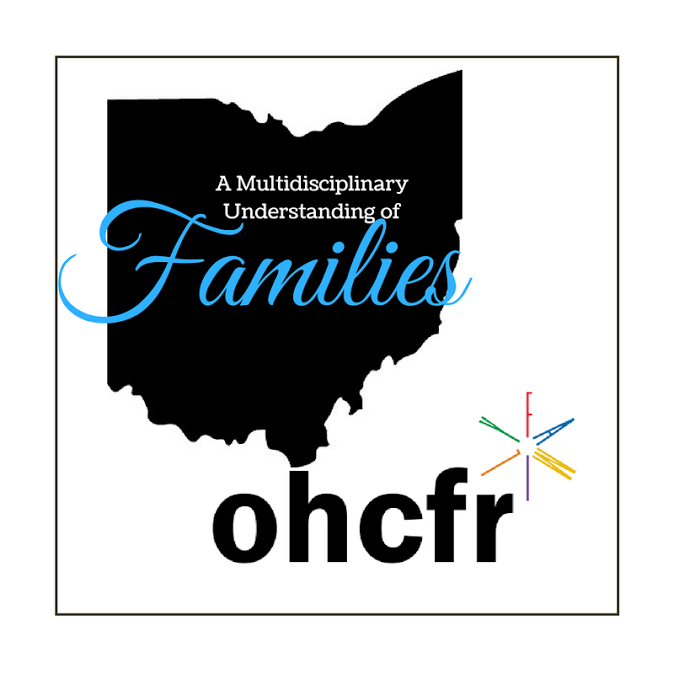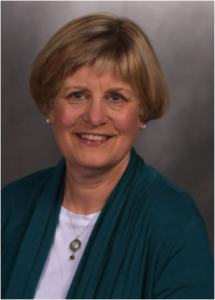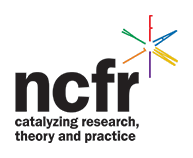
Member ** SPOTLIGHT ** – Anthony James, Miami University
The focus of this month’s member spotlight is Dr. Anthony James, Associate Professor and Director of the Family Science program at Miami University (view his full vitae here) . He believes in the power of professional development and connection and has a passion for marginalized families and positive youth development… and soccer! Dr. James is an asset to the field of Family Science and NCFR.
+ What is your current position? What does your job entail?
- Currently, I am an associate professor in the department of family science and social work at Miami University. I also serve as the director of the family science program.
- My employment at Miami University is categorized into four areas: teaching, research, service, and collegiality. The majority of faculty, at my campus (Oxford), teach 2-3 classes a semester and engage in research or creative activities such as publishing 1-2 empirical articles a year.
+ Where did you get your education, and in what field?
- I attended Lincoln University (MO) for my undergraduate (sociology) and the University of Missouri for my MS and PhD in Human Development and Family Studies.
+ What inspired you to go into the field?
- Generally, a deep desire to help marginalized families. Specifically, I initially chose this field to learn how to become qualified to be a administrator in a social service agency. Eventually my love of teaching and research replaced that desire, so I stayed in higher education.
+ Do you have mentor or was there someone who really helped you out in this field? What was it that they offered to you?
- Several! My graduate school advisor, Dr. Mark Fine, was critical in helping me think about things like how to develop a program of research. Several colleagues at Miami University (e.g., Drs. Kevin Bush, Amity Noltemeyer, Rose Marie Ward, Kate Kuvalanka…among others) helped me develop as a teacher and scholar and navigate the world of being a pre-tenured faculty member. Dr. William Bill Allen has helped me with being engaged the National Council on Family Relations (NCFR). Though those were also great things and no doubt helped me along the way, most of all I truly valued (and continue to value) each of these folks as friends.
+ What are your particular interests within this field? If you do research, what are some of your recent research projects about?
- First, I’m interested in relational person↔ context interactions that instantiate positive youth development. I’ve looked at this across several contexts (e.g., spirituality/religion, schools, family). Secondly, I’m interested in relational family↔context interactions that help marginalized families move from surviving to thriving. I’m currently working on an edited volume (Cognella Press) that uses a systems perspective to examine different aspects of African American family life.
+ What has been your best experience(s) working in this field, or what do you feel is the best part of doing what you do?
- There is so much, but I truly appreciate the opportunity to engage with a community of scholars on issues that give all individuals families a chance at thriving. I am constantly reinvigorated when I go to conferences or read through journal articles or follow certain folks on social media and see all of the work colleagues in my field are doing to help individuals and families. And with modern technology, a simple email allows me to reach out to these great scholars (or for them to reach out to me) and we can collaborate on ideas that hopefully promote the well-being of others. To me, that is pretty cool!
+ What has been your biggest accomplishment?
- Professionally…
- Getting promoted and obtaining tenure.
- Becoming incoming deputy editor of Journal of Family Theory & Review.
- Becoming a consulting editor for Journal of Research on Adolescence.
- Getting elected chair of the Ethnic Minority Section of NCFR.
+ What do you find troubling or frustrating about your position?
- Broadly, academia is undergoing several changes that threaten some aspects of protection and academic freedom. It is my belief that the protections are critical to development and maintenance of a healthy democracy. That they are under attack in several states suggest that there may be some powerful individuals who do not value living in a society that truly gives all its members a chance at reaching their full potential.
- On a much smaller scale, it can be frustrating to deal with the let downs of research and service. As I’ve said, my goal is to help families but humans and families are complex and there are not panaceas that are going to eliminate all inequality. It is especially frustrating to see people who are really working hard at creating a good life continue to fail or not be able to rebound from past failures. That is disheartening but I’m also hopeful that we can build a society that provides more access to thriving, particularly among marginalized individuals and families.
+ What do you still hope to accomplish with your work?
- My pragmatism forces me to hope that my work provides contributive insight into the relational person/family ↔context that helps individuals/families thrive. I know that may seem small, but again this work is quite hard and complex. So any help I can provide on that front is an accomplishment.
+ How has the field changed since your entry?
- One area where I think the field as changed is being the development of tools to impact the daily lives of real people and families. There is this stereotype, which at many levels can be true, that faculty members are cloistered in the ivory tower and have no clue about what may be happening “in the streets”. I think modern technology, and being more active in professional organizations, have helped the field be more of an active agent in demanding change. Though it wasn’t perfect, one example was how many organizations produced position/policy/research statements about the separation of immigrant children from their families and how that effects the psychosocial well-being of the family members. Such examples are how professional organizations, like NCFR, can help issues “go viral”, put pressure on decision-makers, and create some change that potentially reduce the oppression and marginalization of individuals and families.
+ What do you feel is the future of Family Science in Ohio?
- I think the future of FS in OH is two-fold. First, there has to be a stronger connection between active family life educators and OHCFR. Secondly, that relationship can blossom into external relationships with communities, legislators, and institutions. What this allows is a movement of resource and knowledge across different levels of decision making that directly effect individuals and families. No one person or institution can know all the content related to helping individuals and families thrive. So building systems that allow the free movement of information and resources will be key to helping to promote thriving among Ohioans.
+ What advice would you give to a student considering going into the Family Science major?
- I would first ask the student to peruse the website family.science to get a better understanding of what family science professionals do. If the students is still interested, I would hope to talk to the student about differences in prevention vs. intervention work and which of the two may be more suited to their interests and skills. Finally, I would ask the student to develop a relationship with a faculty member who is actively engaged in a family science professional organization.
+ What advice would you give to a new generation of graduates going into the field?
- First, I would advise the novice professional to either develop or not lose connection with a family science professional organization. Too often, these organization can be research/faculty heavy, but as I said before…there needs to be strong systems in place that connects all of the components involved in helping individuals and families. Secondly, I would strongly encourage graduates to not forget the content they learned in their theories and research methods courses. These are tools that are going to be important in helping families in their career, in a systematic way.
+ What is a “must read” book for those interested in Family Science?
- I’m a little biased so I lean heavily towards theory. There are several good theory books that provide a great entry into family science and thinking about the many ways people go about helping families (e.g., Allen & Henderson, 2016; Boss, Doherty, LaRossa, Schumm, & Steinmetz, 2009; Fine & Fincham, 2013; White, Klein, & Martin, 2015; note: A simply google search of each set of names with “and family theory” should populate a given text).
+ What is your most used or go-to Family Science resource?
- Besides the texts listed above…I would also suggest the three journals produced by the NCFR (i.e., Journal of Marriage and Family, Family Relations, Journal of Family Theory & Review) and the resource library found on NCFR’s website.
+ To what professional organizations to you belong?
- National Council on Family Relations
- Society for Research in Child Development
- Society for Research on Adolescence
- American Humanist Association
+ What do you like to do in your free time?
- Hang out with my immediate family….engage with my friends….read…travel…listen to inspiring talks on my way to work (e.g., TED Talks)…watch television (usually sports).
+ How do you practice self-care? What is your favorite way to de-stress?
- Regular dates with my wife. Integrating myself into a community of caring people. Watch a lot of soccer! Domestic…Go FC Cincinnati (orange & blue); International….Go Man United (Red Devils)! J
+ What do you do to effectively balance your work and family?
- I try to not answer emails in the evening or on weekends. I also try to not work, with the exception of writing. I try to write as often as possible. I also incorporate my family into some of my work by explaining what I’m working on and asking for their feedback. I also acknowledge that feedback in my manuscripts. Lastly, regular weekly meals with my immediate family. These dinners are refreshing and keep me connected to the most important folks in my life. Oh, and I’m lucky that my family likes soccer!


 Member ** SPOTLIGHT ** – Back to school edition –
Member ** SPOTLIGHT ** – Back to school edition –
